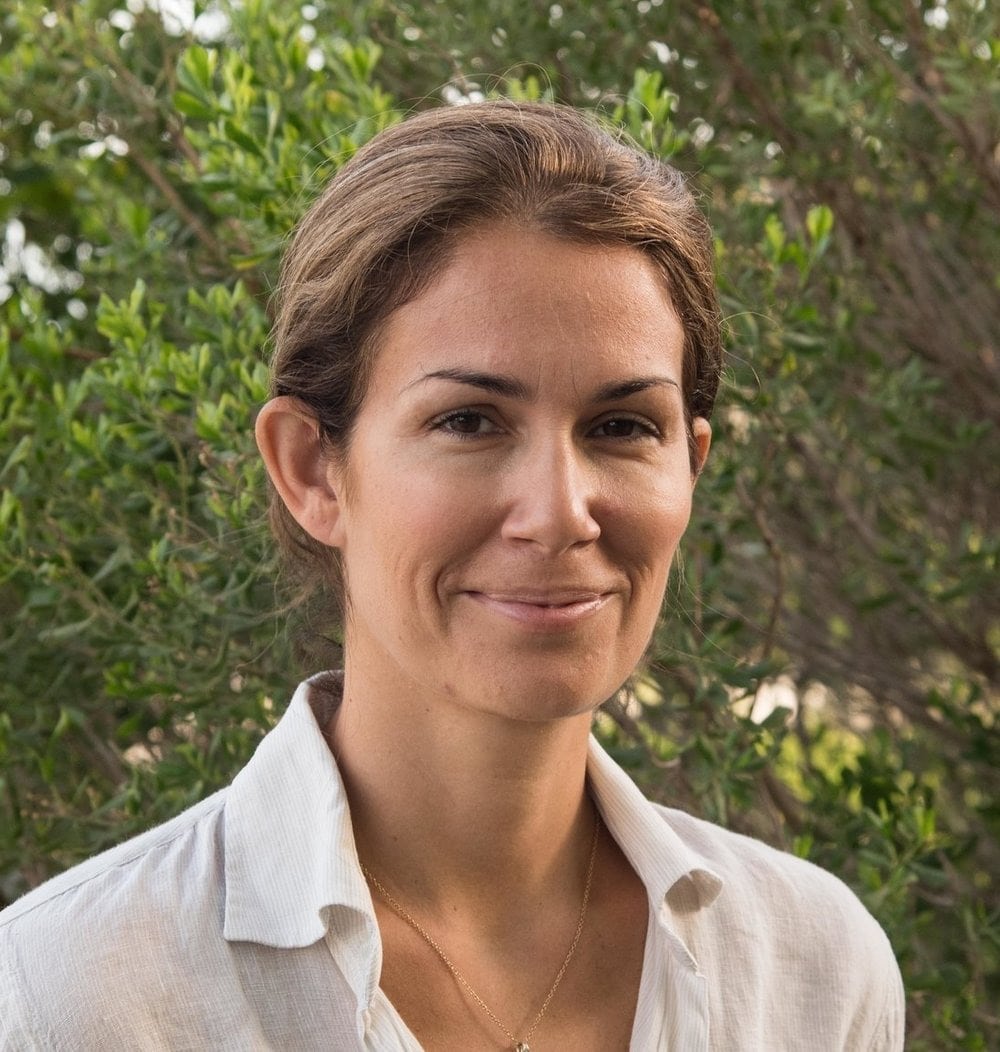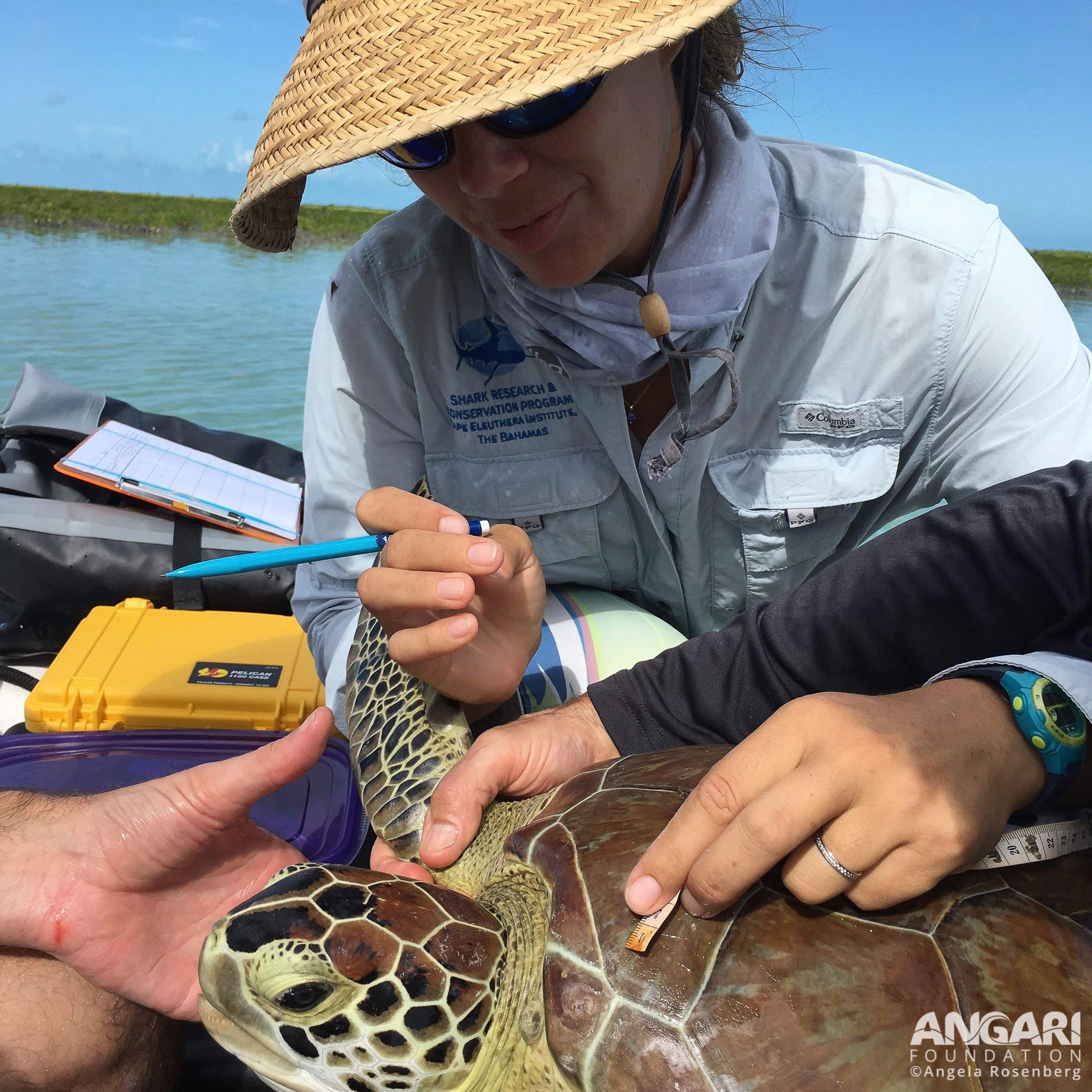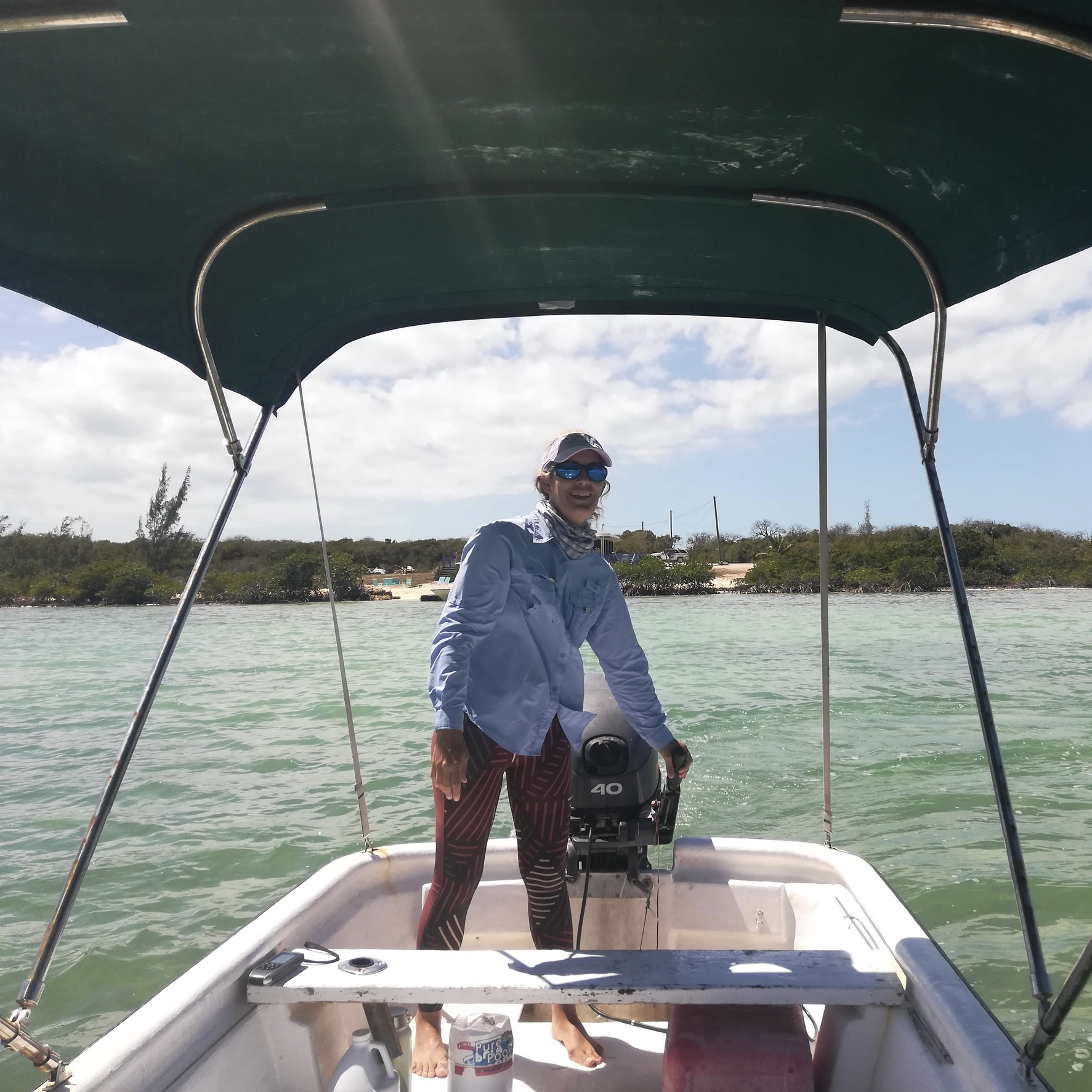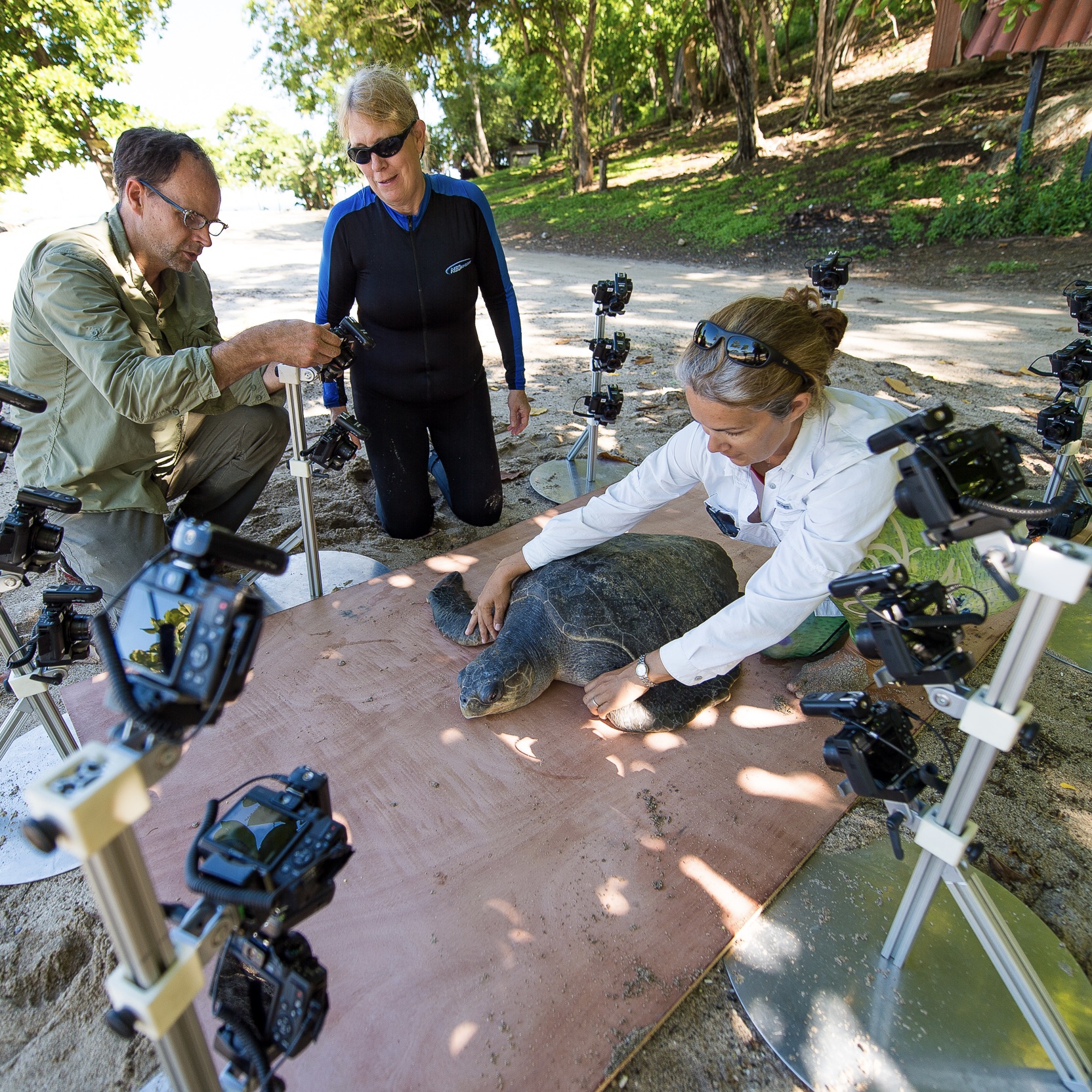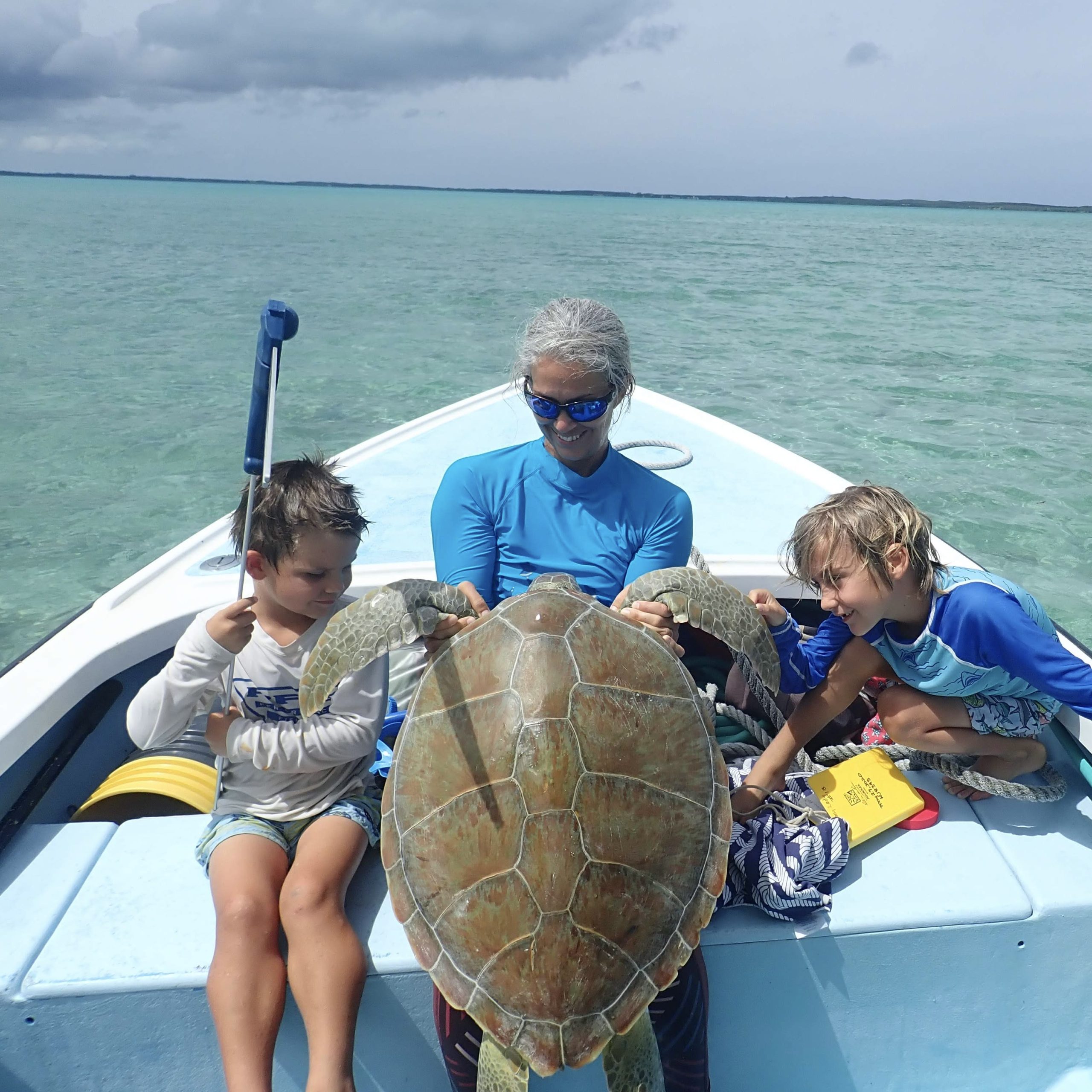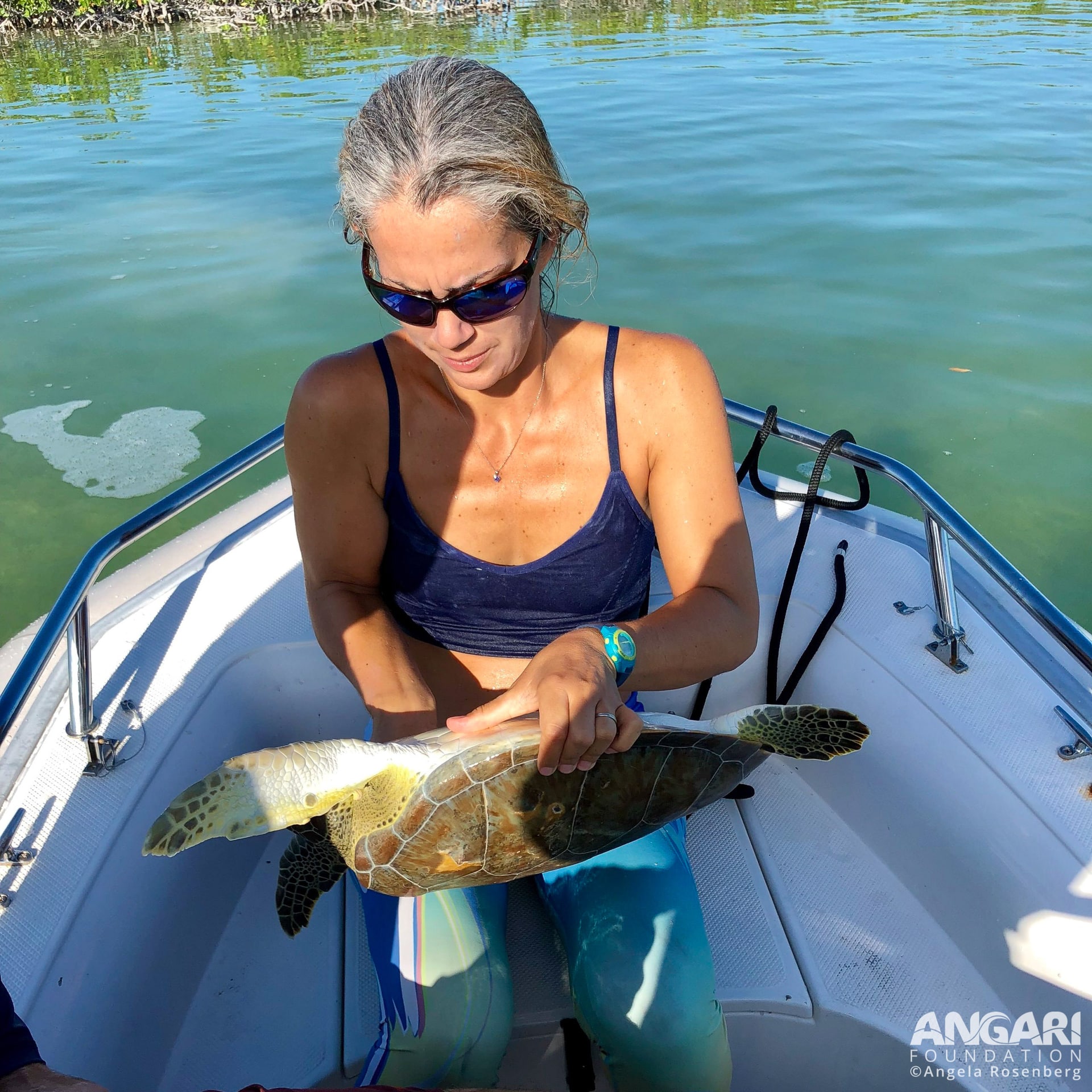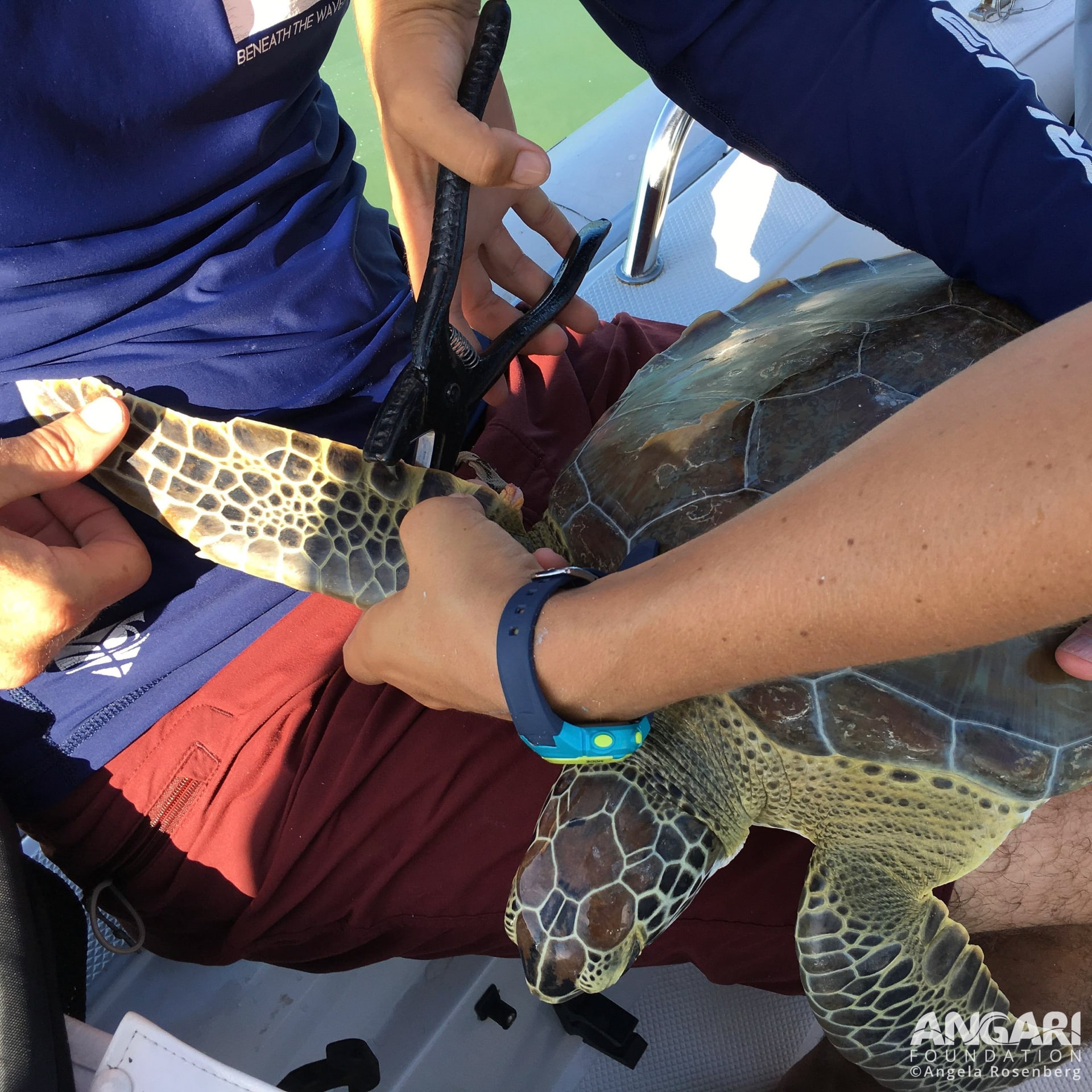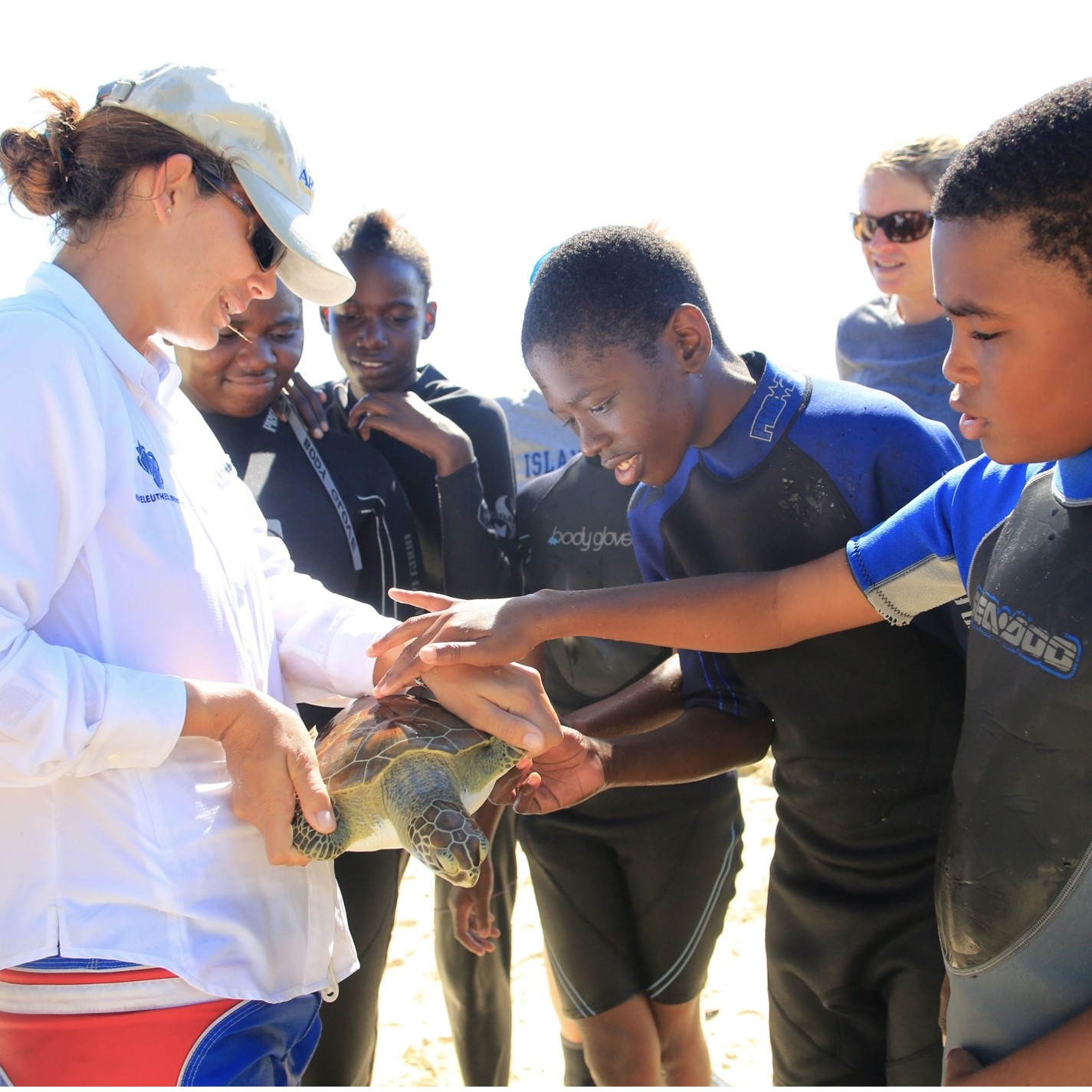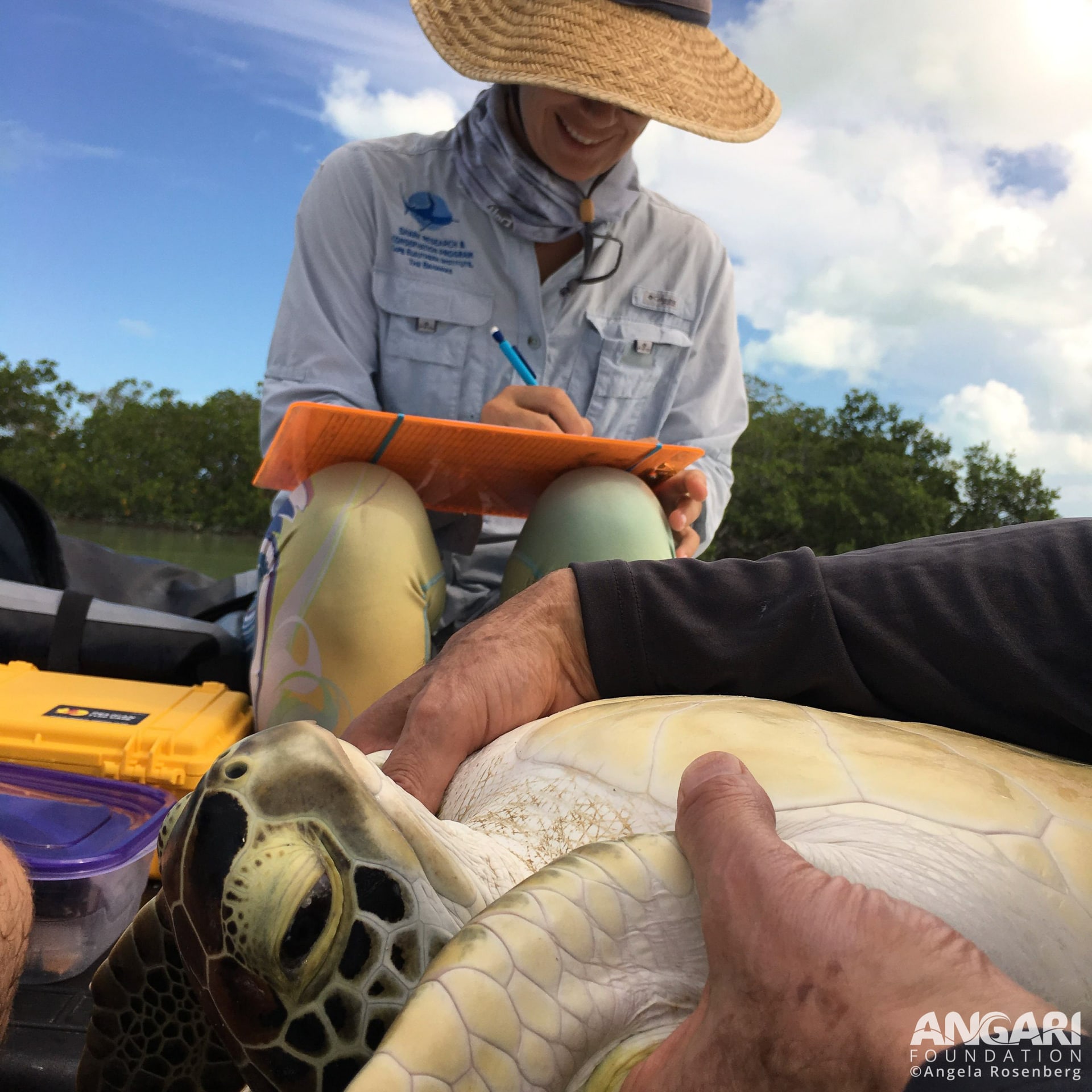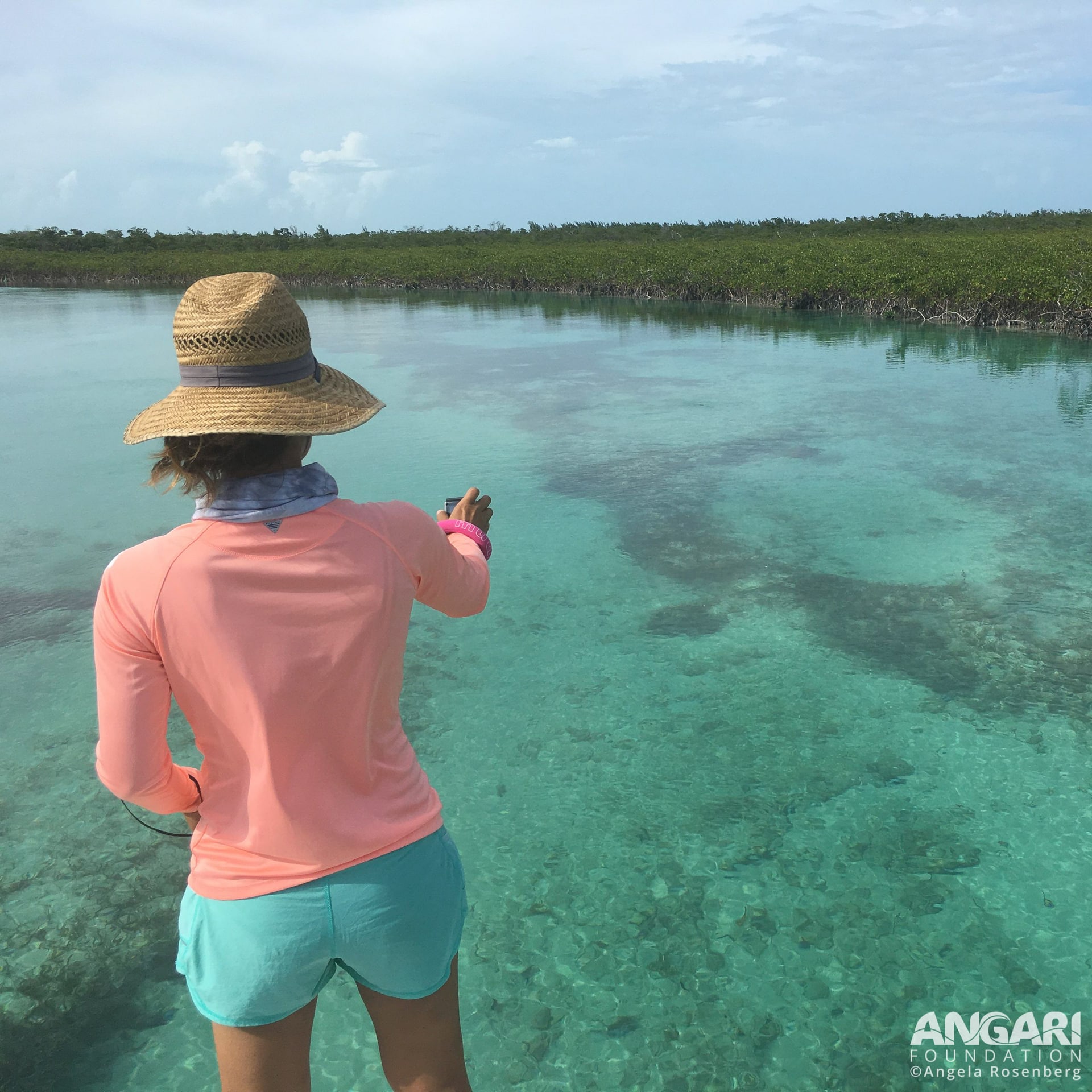

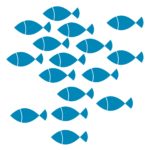
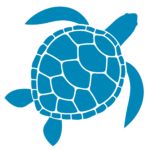
Meet Annabelle Brooks
I am from England and have over twenty years of marine ecology experience with seventeen of those years spent living and working in The Bahamas. Following deployment as a fisheries observer in the North Atlantic, I completed my Master’s degree in Marine and Fisheries Science at the University of Aberdeen (UK) with my thesis focusing on coral reef fish ecology in The Bahamas. I then spent a year in the Maldives, but eventually settled on Eleuthera in The Bahamas at the Cape Eleuthera Institute. There, my research has spanned studies on the invasive lionfish, sharks, sea turtles, sustainable fisheries & aquaculture and coral reef ecology & restoration. I am currently completing my PhD through the University of Exeter, UK investigating the ecology of juvenile green sea turtles.
2004 MSc. Marine & Fisheries Science, University of Aberdeen
2001 BSc. Marine Biology, University of Hull
Get To Know Annabelle
I was interested in space and the oceans from a young age. Through the opportunity to travel, visit aquariums and such, I focused on marine biology. I started scuba diving at age 16 and pursued a degree in marine biology in England. I spent my summers interning and was able to volunteer on a project in The Bahamas after graduation. There I was able to gain skills in coral reef fish identification and surveys, but was particularly interested in fisheries science. I went back to the UK to complete a Masters in Fisheries and Marine Science and also spent some time as a fisheries observer in the North Atlantic. I was ready for some warm weather after all that and secured a position in the Maldives as a marine biologist/guide, but eventually found my way back to The Bahamas as a marine ecology course instructor at The Island School, Eleuthera. The Bahamas has an amazing mosaic of habitats, so living and working here has made studying marine life so interesting and exciting.
If conducting field work, then there is a lot of planning to ensure you have a plan, equipment and resources ready. You’re hoping for good weather and excited to get out on the water! A lot of my work takes place in shallow mangrove creeks which could be 30 minutes to an hour away by boat. We usually get out on the water early and it’s typically hot, so we cover up to avoid getting sunburnt. I spend less time in the water or working hands-on, and instead, more time overseeing and training students or assistants so they have the opportunity to learn skills. We get back to home base late afternoon, then there is plenty of cleanup and preparation to do for the next day. When the field work is over, there is data to organize and analyze, reports and grant applications for future work to be written, etc. There is also a lot to learn, like statistical techniques. I also enjoy preparing for teaching, going to conferences and preparing presentations to communicate our work.
Ooh, that’s hard to answer! There are far too many amazing creatures for different reasons. In the last few months living aboard a boat we were treated to whale and dolphin sightings, which are rare for us. I’ve also been able to spend time in the water with many different sharks, which are some of the more thrilling marine animals to observe. I think diving with great hammerheads on our ANGARI expedition to create a 3D model was incredible – they are so big and powerful, yet graceful, and we got very close to them.
I established the Sea Turtle Research and Conservation program at the Cape Eleuthera Institute in 2012 and was awarded funding from the Earthwatch Institute in 2013. I used this funding to design a study that would satisfy PhD requirements, and I also had wonderful advisors who were willing to take me on as a collaborator and student. I had spent many years already conducting research and I enjoyed doing it, so I wanted to achieve a qualification that reflected that work.
My thesis is quite broad but centers on the ecology of juvenile green sea turtles while they’re in their developmental habitats. Aspects include how they select their foraging habitats based on factors such as food availability and presence of predators and the threat they face from disease (Fibropapilomatosis) while in these habitats.
I had originally started my marine science career investigating coral reef fish, but thanks to my position at the Cape Eleuthera Institute and the myriad of habitats in the vicinity, I was able to be involved with and develop a variety of research programs. Early on, there was a strong focus on using various methods of telemetry to study fish movements locally (acoustic telemetry), but this expanded to longer migrations and also into the deep sea (satellite telemetry). Through collaborations with other scientists I moved into studying invasive species (the lionfish), sea turtles and even coral restoration. As technology evolves, I have also had the opportunity to implement developing technology into science (e.g. drones, VR, 3D modeling). This allows us to refine our data collection to ask the most urgent questions in the most efficient and least invasive ways.
I had seen very few sea turtles in the wild until I met my collaborator and mentor, Stephen Connett, who pointed them out to me near where I conducted a lot of other field work. Learning about his studies and realising how endangered they were inspired me to join him and help continue his work. There is so much to still learn about sea turtles, and being in a perfect location to study them, it was an obvious choice to make.
Spending time outdoors and in nature! No matter the weather, being outdoors and experiencing the beauty around us is always a great reset and reminder that we need to keep learning and doing more to conserve and restore what we have. I’m fortunate to have spent many years teaching and have included students and volunteers of all ages in my work while witnessing their first-hand experience in marine science or just in the marine environment. This is particularly satisfying and a good reason to keep going.
I think as soon as you’re able, get as much experience as possible through volunteering or internships in different habitats, with different species and people. Not only do you build up your resume, but you meet people who may influence your path and provide further opportunities. You also gain a wide variety of skills and figure out what you enjoy. Depending on where you live, it may be hard to find certain opportunities, but being a marine scientist isn’t all dolphins, scuba diving or sea turtles! Any kind of wildlife/habitat science will be useful early on. Developing skills such as scuba diving and boat handling are also a useful addition if you want to have a career doing those things. Finally read, read, read! There is so much amazing literature and information out there now and accessible in so many forms.
I think so! I have always loved to travel from a young age, so I have always wanted to live and work in the same tropical environment and be by the sea. I think I enjoy terrestrial wildlife just as much, so hands-on ecology in either environment would have also made me happy. In fact, I’ll be moving to Africa this year and finally have the opportunity to do some terrestrially based science!
Interview conducted in May 2022

